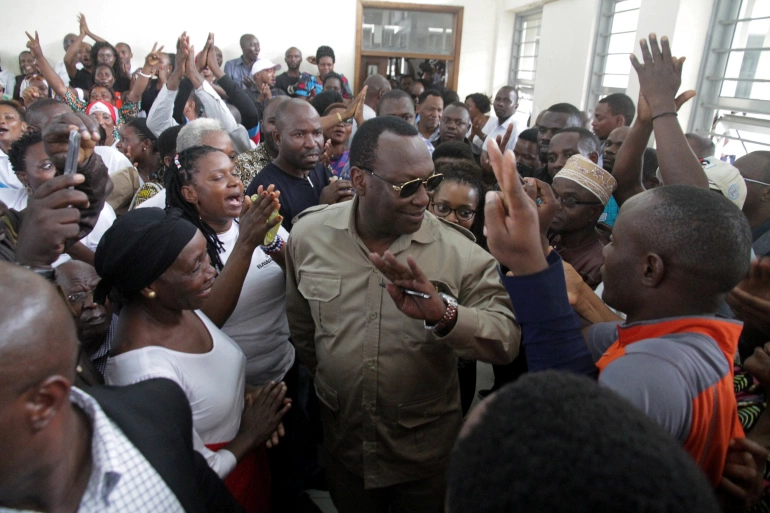Freeman Mbowe was arrested last week while preparing for a meeting on new constitution proposals.
A court in Tanzania has charged the leader of the main opposition party with “terrorism-related” crimes, police said on Monday, following his arrest while preparing for a meeting to discuss proposals for a new constitution.
Freeman Mbowe, head of the Chadema party, and 10 others were arrested in the city of Mwanza on Wednesday, in what the party said was proof that President Samia Suluhu Hassan was continuing with the authoritarianism of her late predecessor John Magufuli.
Jumanne Muliro, Dar es Salaam special zone police commander, said Mbowe had been charged at Dar es Salaam’s Kisutu Resident Magistrate’s court.
“It is true that he was charged in court this afternoon for the charges that were initially reported by the police in a statement,” he told Reuters news agency by phone.
‘Terrorist acts’
Police spokesperson David Misime said in a statement on Thursday that Mbowe was arrested for “accusations on plotting terrorist acts including conspiracy to kill government leaders where his six fellows have already been charged in court”.
John Mnyika, Chadema’s secretary general, said Mbowe was charged without his lawyer or family members being present.
“Police have misled lawyers and family members … that he has been sent to hospital. The truth is that he has been sent to Kisutu court … and he has been charged for terrorism. They have sent him to prison,” Mnyika said on Twitter.
However, Muliro said they had prosecuted him according to the law after completing the charge sheet.
“There is nowhere in the law that says we should prosecute someone until there is his or her lawyer or family member, but it requires us to do so when interrogating him,” he said.
The government has long denied opposition accusations of authoritarianism.
Chadema says the constitution should be changed to protect democracy following the rule of Magufuli.
Hassan, of the ruling Chama Cha Mapinduzi party, served as Magufuli’s vice president before succeeding him when he died in March of what the government called a heart condition.
Magufuli had been Africa’s most prominent COVID-19 sceptic, dismissing the virus as harmless, resisting restrictions to halt its spread and rejecting vaccines.

